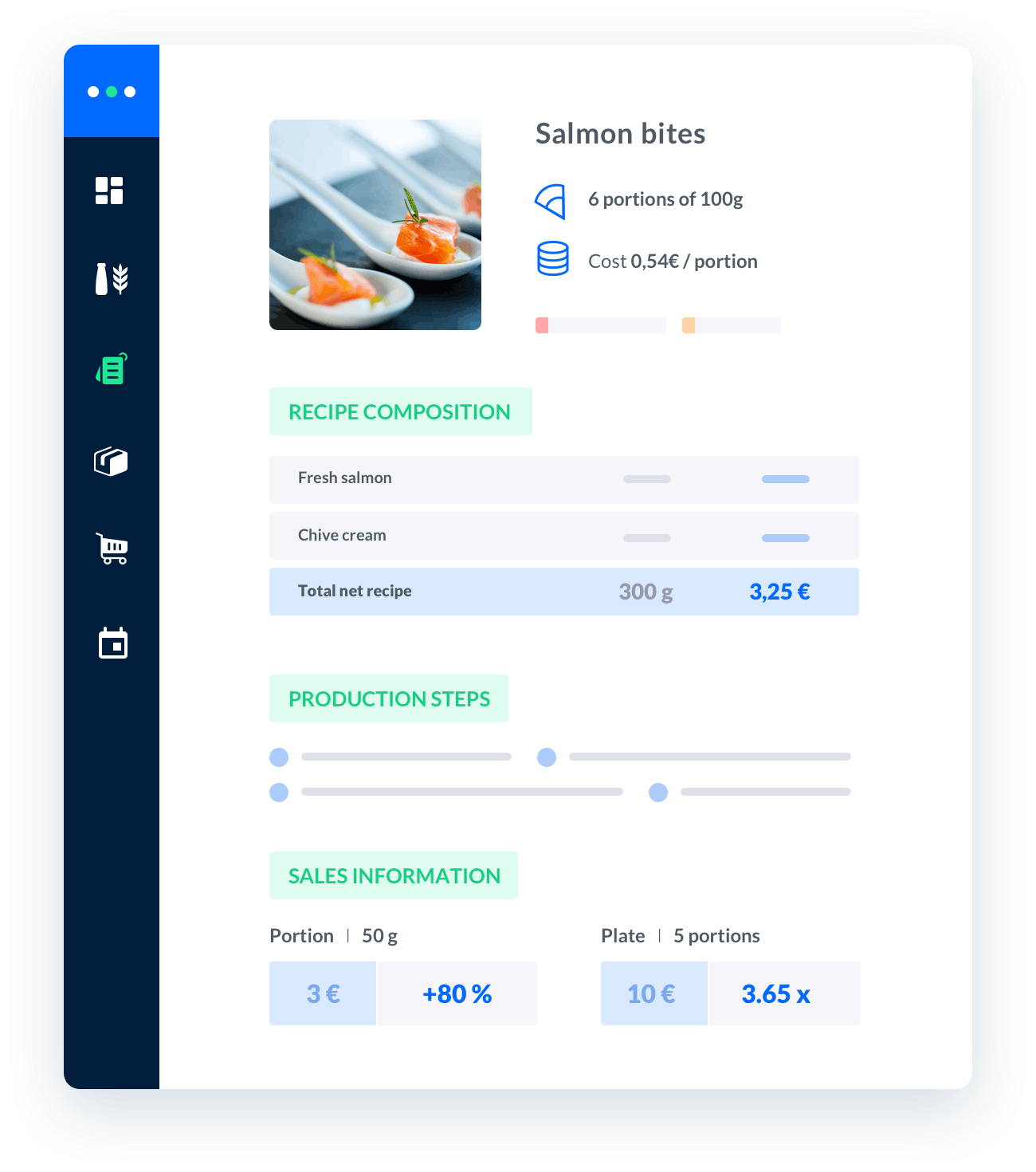fixed costs in a restaurant
fixed costs in a restaurant play a crucial role in determining the financial stability and profitability of the business.As a professional in the catering industry, it is essential to have a clear understanding of what fixed costs are and how they impact the overall operations.

Melba: the food cost app to optimize the profitability of your restaurant
Discover how to optimize the profitability of your restaurant with melba

The ultimate guide to food cost restaurant
Learn more about the food cost basis and how to reduce your food cost percentage
fixed costs in a restaurant play a crucial role in determining the financial stability and profitability of the business. As a professional in the catering industry, it is essential to have a clear understanding of what fixed costs are and how they impact the overall operations. This comprehensive guide aims to provide you with valuable insights into fixed costs, their types, and their significance in the restaurant industry.
Understanding Fixed Costs
Fixed costs, also known as overhead costs, are expenses that remain constant regardless of the level of production or sales. These costs do not change with the volume of business activities or fluctuations in sales and are incurred regularly irrespective of the restaurant's performance. Fixed costs are essential for the smooth functioning of a restaurant and are incurred regardless of whether the establishment is making a profit or not.
Types of Fixed Costs
Fixed costs in a restaurant can be broadly categorized into the following:
- 1. Rent and Lease Payments: This includes the monthly rental or lease amount paid for the restaurant space. It remains unchanged regardless of the number of customers served or the level of sales.
- 2. Insurance Premiums: Insurance costs, including property, liability, and worker's compensation insurance, are fixed expenses that need to be paid regularly to protect the restaurant from unforeseen events.
- 3. Utilities: Expenses related to electricity, gas, water, and other utilities are generally fixed costs that need to be paid irrespective of the restaurant's daily operations.
- 4. Equipment and Maintenance: Costs associated with the purchase, depreciation, and maintenance of kitchen equipment, furniture, and fixtures are considered fixed expenses.
- 5. Salaries and Wages: While variable costs may arise from staff overtime or additional hires during peak seasons, the base salaries and wages of permanent employees are fixed costs.
- 6. Licenses and Permits: Restaurant licenses, permits, and certifications are typically fixed costs that need to be renewed periodically.
Significance of Fixed Costs in a Restaurant
Fixed costs are of paramount importance in the restaurant industry due to the following reasons:
1. Financial Planning and Budgeting
Fixed costs provide a foundation for financial planning and budgeting in a restaurant. By identifying and accurately estimating these costs, restaurant owners and managers can develop a realistic budget and allocate resources efficiently. This helps in avoiding financial surprises and ensures that the business remains financially stable.
2. Establishing Pricing Strategies
Fixed costs play a crucial role in determining the pricing strategies of a restaurant. By understanding the magnitude of fixed costs, restaurant owners can set menu prices that not only cover variable costs but also contribute towards covering overhead expenses. This ensures that the restaurant remains profitable and sustainable in the long run.
3. Assessing Profitability
Fixed costs are taken into account when calculating the profitability of a restaurant. By deducting fixed costs from the total revenue generated, restaurant owners can determine the net profit. This information is vital for assessing the financial health of the business and making informed decisions regarding future investments and expansions.
4. Cost Control and Optimization
Understanding fixed costs allows restaurant owners and managers to identify opportunities for cost control and optimization. By analyzing these expenses, they can identify areas where cost reductions can be made without compromising the quality of food and service. This proactive approach helps in maximizing profitability and operational efficiency.
Effectively Managing Fixed Costs
To effectively manage fixed costs in a restaurant, consider the following strategies:
1. Regular Review and Negotiation
Regularly review fixed costs and explore opportunities to negotiate better deals with suppliers, landlords, and service providers. Analyze contracts and agreements to ensure that you are not overpaying for any services or utilities.
2. Energy Efficiency
Implement energy-efficient practices and equipment to reduce utility costs. This can include using energy-saving light bulbs, optimizing HVAC systems, and properly insulating the restaurant premises.
3. Staff Optimization
Ensure that staffing levels are optimized to avoid unnecessary labor costs. Properly schedule shifts, cross-train employees, and use technology to streamline operations and reduce labor expenses.
4. Inventory Management
Efficient inventory management helps in reducing food waste and associated costs. Implement inventory tracking systems, analyze consumption patterns, and streamline procurement processes to avoid overstocking or understocking.
5. Maintenance and Repairs
Regularly maintain and service equipment to prevent breakdowns and costly repairs. Timely repairs can extend the lifespan of assets and minimize the need for immediate replacements.
By implementing these strategies, restaurant professionals can effectively manage fixed costs, improve profitability, and ensure the long-term success of their establishments.






